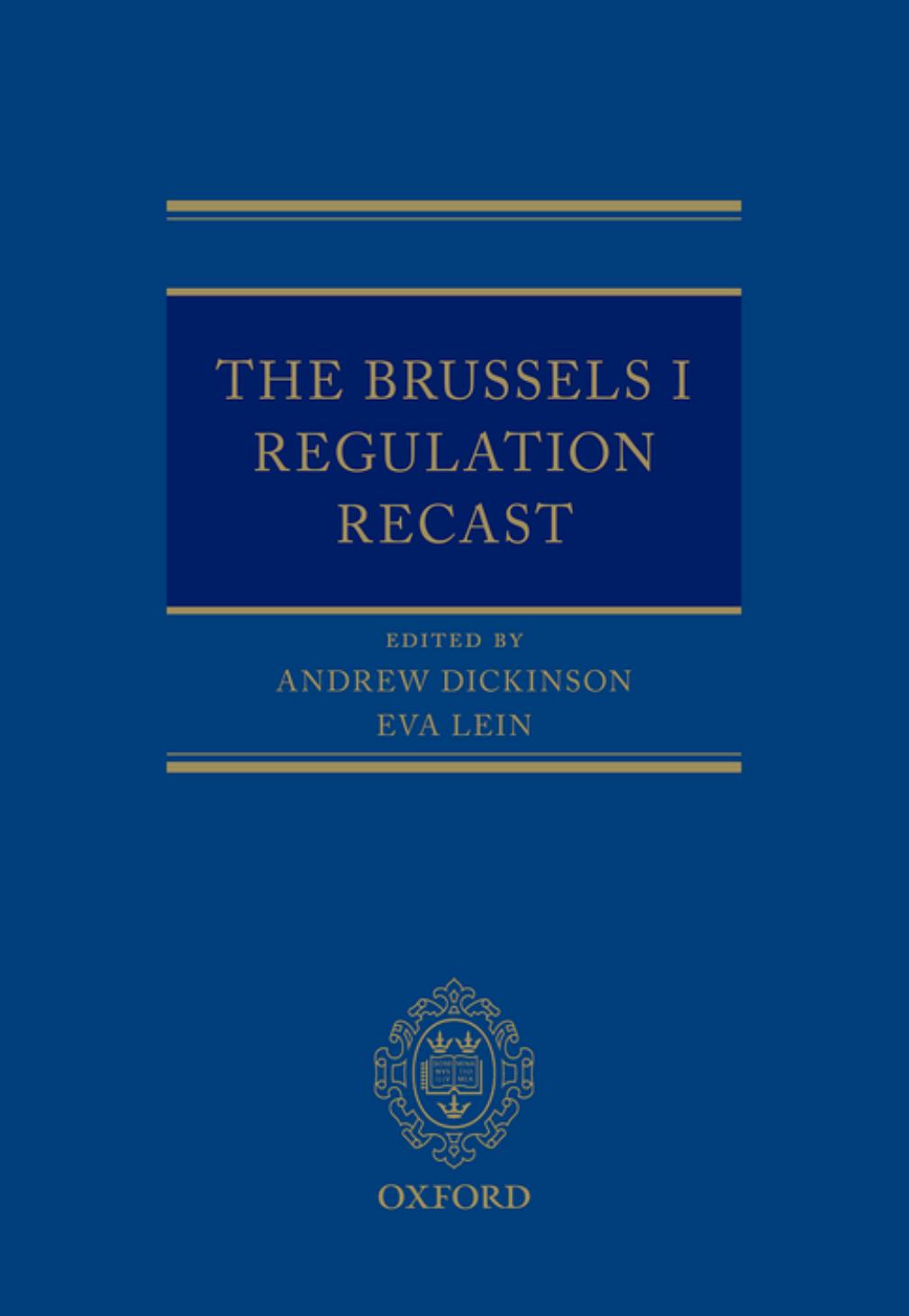Download THE BRUSSELS I REGULATION RECAST PDF Free - Full Version
Download THE BRUSSELS I REGULATION RECAST by Andrew Dickinson;Eva Lein in PDF format completely FREE. No registration required, no payment needed. Get instant access to this valuable resource on PDFdrive.to!
About THE BRUSSELS I REGULATION RECAST
This book, conceived in an Italian restaurant near Russell Square, contains commentary on the Recast Brussels I Regulation (Regulation (EU) No 1215/2012), an important piece of European Union legislation governing questions of jurisdiction and the recognition and enforcement of judgments in civil proceedings instituted on or after 10 January 2015 before the courts of the Member States. This commentary is intended to serve two main purposes. First, it serves as an introduction for all interested parties to the Regulation’s structure, objec- tives, provisions, ancestry, and legislative history, as well as to the key jurisprudence of the Court of Justice of the European Union (CJEU) interpreting the Regulation’s predecessors, the 1968 Brussels Convention and the 2001 Regulation (Regulation (EC) No 44/2001). Secondly, it serves as a more detailed guide to the novel features of the Regulation, in com- parison with its predecessors. Having stated these objectives, no doubt modest, but chal- lenging enough in themselves, it is important that we disclaim any intention to produce a comprehensive commentary on the application of all provisions of the Brussels I regime, to identify all relevant national case law, or to identify and address each and every issue that will trouble national courts and the CJEU in the future. That seems impossible in a single volume of this size, developed and then written in the period of around two years since the Regulation was approved. Instead, we hope that the commentary will serve as a point of reference, establishing a framework and foundation for further study and research. We have given our authors, as experts in the field, a broad mandate to address those aspects of the Recast Regulation that they consider important or controversial, with the requirement that they should at the same time explain the key features of the Articles assigned to them. As editors, we have seen our main role as being to review submissions, to ask questions of our authors when appropriate, and to ensure consistency of presentation throughout the work. We have not sought to impose an ‘editorial line’ or to create a single voice throughout the work. We are also conscious that there are issues, at the intersection of two or more provi- sions, on which our authors disagree—in those cases, we have sought to flag the differences of opinion by cross-references, without seeking to resolve them.
Detailed Information
| Author: | Andrew Dickinson;Eva Lein |
|---|---|
| Publication Year: | 2015 |
| ISBN: | 198714289 |
| Pages: | 846 |
| Language: | other |
| File Size: | 88.8727 |
| Format: | |
| Price: | FREE |
Safe & Secure Download - No registration required
Why Choose PDFdrive for Your Free THE BRUSSELS I REGULATION RECAST Download?
- 100% Free: No hidden fees or subscriptions required for one book every day.
- No Registration: Immediate access is available without creating accounts for one book every day.
- Safe and Secure: Clean downloads without malware or viruses
- Multiple Formats: PDF, MOBI, Mpub,... optimized for all devices
- Educational Resource: Supporting knowledge sharing and learning
Frequently Asked Questions
Is it really free to download THE BRUSSELS I REGULATION RECAST PDF?
Yes, on https://PDFdrive.to you can download THE BRUSSELS I REGULATION RECAST by Andrew Dickinson;Eva Lein completely free. We don't require any payment, subscription, or registration to access this PDF file. For 3 books every day.
How can I read THE BRUSSELS I REGULATION RECAST on my mobile device?
After downloading THE BRUSSELS I REGULATION RECAST PDF, you can open it with any PDF reader app on your phone or tablet. We recommend using Adobe Acrobat Reader, Apple Books, or Google Play Books for the best reading experience.
Is this the full version of THE BRUSSELS I REGULATION RECAST?
Yes, this is the complete PDF version of THE BRUSSELS I REGULATION RECAST by Andrew Dickinson;Eva Lein. You will be able to read the entire content as in the printed version without missing any pages.
Is it legal to download THE BRUSSELS I REGULATION RECAST PDF for free?
https://PDFdrive.to provides links to free educational resources available online. We do not store any files on our servers. Please be aware of copyright laws in your country before downloading.
The materials shared are intended for research, educational, and personal use in accordance with fair use principles.

